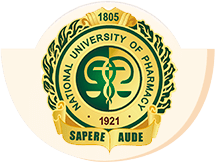Characteristic feature of modern stage of clinical medicine development is constant increase of importance of laboratory diagnostics. According to competent specialists, including WHO experts, the level of development of laboratory diagnostic service as well asofradiodiagnostic service is a major ranking criterion healthcare system. Best hospitals of the world have well-developed laboratory diagnostic services. According to WHO’s data, laboratory research share is not less than 60% of all research conducted in treatment institutions of the world. Their quantity, enough for adequate patient examination, doubles every 5 years. At the same time, laboratory research results can only be useful when rationally conducted and objectively evaluated.
Laboratory diagnostics is a part of clinical diagnostics, which studies and evaluates physiological state of the body, cellular and chemical blood composition, biological properties of tissue and fluids, diagnoses pathogenic agents and diseases.
Among the objective diagnostic techniques, the laboratory research data is highly estimated due to possibility of revealing pathology long before the appearance of evident changes in organs and onset of symptoms.
Alongside with this, there is another important problem that modern medicine faces – dependence of clinico-laboratory results on medication intake, which can lead to misinterpretation of clinico-laboratory research data, establishing of erroneous diagnosis as well as to irrational treatment.
During your education process you will be able to study immunological, biochemical, bacteriological, cytological and proper clinico-laboratory analysis techniqueswith application of modern laboratory equipment.
Inclusion into curriculum of such purely medical subjects as “Propedeutics of internal diseases”, “General surgery”, “Manipulation technique”, “Skin and venereal diseases”, “Forensic medicine”, “Pathological anatomy” etc. enables an expert to integrate diagnostic knowledge of a laboratory technician and skills of a nurse.
Professional activity
A bachelor in laboratory diagnostics, trained by NUPh, who mastered chemical, physicochemical, instrumental, microbiological, clinical and other methods of measuring qualitative and quantitative characteristics of research data, can fulfill himself on the proper level. He will take part in planning and effective work of the laboratory and its junior staff; perform functions of laboratory diagnostician; conduct clinico-laboratory research;counsel physician on the issues of diagnostic techniques choice, drug impact on the results of clinico-laboratory research; carry out scientific work.
Upon graduation, alumnus receives bachelor of medicine diploma and is eligible to work in following laboratories:
– of general non-invasive diagnostics;
– of hematologic clinico-laboratory diagnostics;
– of clinical biochemistry;
– of clinical bacteriology;
– of clinical parasitology;
– of clinical laboratory immunology;
– of clinical laboratory genetics;
– of clinical laboratory cytology;
at:
– prevention and treatment facilities (hospitals, centers, territorial health maintenance organizations, infirmaries, medical units, specialized dispensaries);
– outpatient care centers;
– sanitary-epidemiological stations;
– blood transfusion stations;
– emergency and urgent care institutions;
– Pathologoanatomic bureaus;
– Forensic bureaus.


